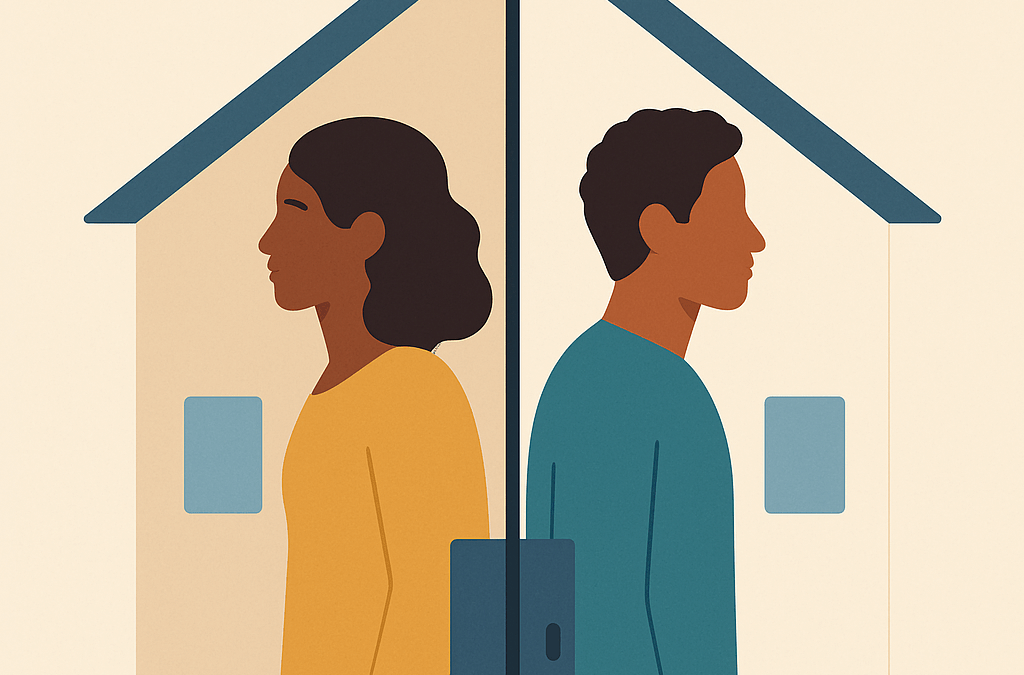The issue of who occupies the marital home during divorce proceedings often raises many questions.
Who can live in it? Who decides? Is the use free or subject to compensation? How long does it last? How and when is any occupation indemnity paid?
This article provides an overview of the applicable rules to help you better understand your rights and obligations.
1. Who Can Occupy the Marital Home During Divorce Proceedings?
In principle, the marital home can be granted to either spouse during the divorce proceedings.
The decision is made by the family court judge, who considers the interests of both spouses, and in particular, the best interests of the children when they live with one parent.
If the spouses are still living together at the time of the provisional measures order, the judge usually grants a period of three months for the spouse who does not retain use of the home to vacate the premises.
2. Who Decides on the Occupation of the Marital Home?
It is the family court judge who decides, as part of the provisional measures, which spouse will occupy the marital home during the proceedings.
The judge’s decision is based on the concrete circumstances of the spouses and, where applicable, on the children’s best interests.
3. Free or Compensated Use: How Does It Work?
The judge must specify whether the use of the marital home is free or compensated.
If the decision is silent, it is presumed to be compensated.
3.1. Free Use
-
-
- Free use may be granted to the spouse remaining in the family home, but the judge must expressly state this in the order.
- Free use is justified by the spousal support owed between spouses during the divorce proceedings.
- It is not automatic and does not apply if the occupying spouse is in a stronger financial position than the other.
-
3.2. Compensated Use
-
-
- If the use is compensated, the occupying spouse must pay an occupation indemnity to the other spouse or to the co-ownership, depending on whether the property is separate, common, or jointly owned.
- The judge does not set the amount of the indemnity unless both spouses agree; in that case, the judge records the agreement in the order.
-
3.3. Duration of Free Use
-
-
- Before the divorce petition (or the order of non-conciliation for proceedings initiated before January 1, 2021), sole occupation of the home by one spouse is presumed free of charge.
- For the period between the divorce petition and the final divorce decree, the judge decides whether use is free or compensated.
- Once the divorce is final, the spouse who continues to occupy the property must, unless otherwise specified, pay an occupation indemnity.
-
3.4. Payment of the Occupation Indemnity
-
-
- In the case of compensated use, the indemnity does not need to be paid during the divorce proceedings. Instead, it is recorded as a liability of the debtor spouse and will be taken into account during the liquidation of the marital property regime.
- Actual payment of the indemnity occurs at the time of the division of property, after the divorce decree.
-
4. Summary of Applicable Rules
| Situation | Who Decides? | Free Use? | Compensated Use? | When Is Indemnity Due? |
| Before the divorce petition | Spouses / by default | Yes, presumed | No, unless otherwise ordered | No indemnity due |
| During proceedings (after petition/order) | Family court judge | Possible if expressly stated | Yes, if stated or presumed otherwise | Upon liquidation of marital property |
| After final divorce decree | – | No, unless special provision | Yes, by default | From exclusive occupation until property is returned |
5. Key Points to Remember
-
-
- The family court judge decides which spouse occupies the marital home during divorce proceedings.
- Free use must be expressly stated; otherwise, it is presumed compensated.
- The occupation indemnity is determined at the time of the property division, unless the spouses have agreed on an amount beforehand.
- The presence of children in the home may influence the judge’s decision but does not necessarily exempt the occupying spouse from paying an indemnity.
- Payment of the indemnity occurs during the liquidation of the marital property regime, after the divorce decree becomes final.
-
For any particular situation, it is strongly recommended to consult an attorney or legal professional to ensure these rules are adapted to your specific case.
© Photo : AI
